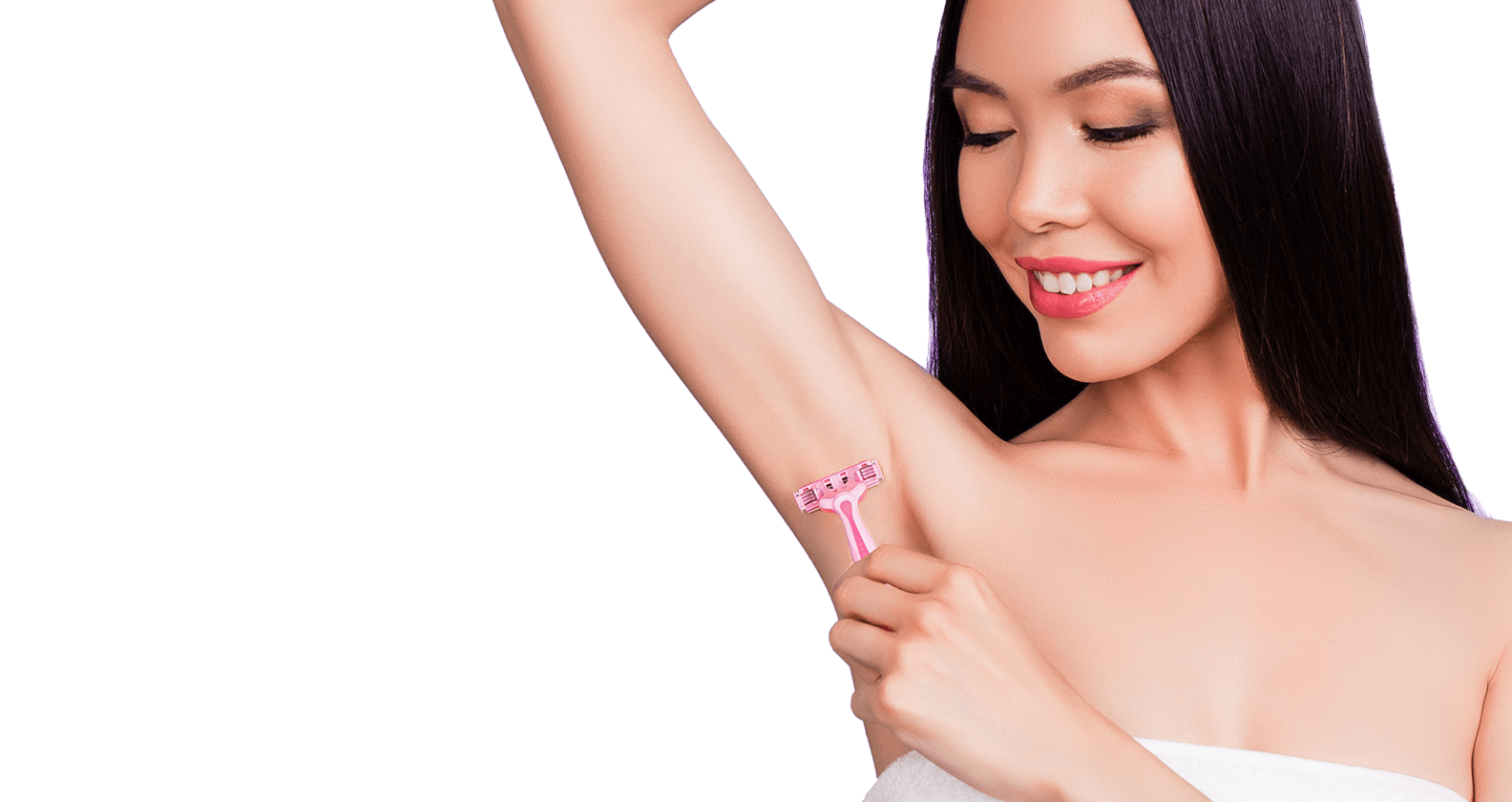
All it really is takes is one tiny spot to give you endless discomfort. The reality is that nobody likes it when there’s a hair stuck under their skin and desperate to break free. Yikes!
For hairless happiness and a bump-free life, skin preparation and a good hair removal technique is key.
For a tiny bump, it can sure cause a lot of drama.
Did you know that an inefficient shave could cause and even promote the growth of ingrown hairs?
You see, all hairs grow from a root in the skin from a follicle. From time to time, hairs fall out and start over again (or get shaved, plucked, etc). If the tip of the hair gets caught in the follicle, the hair still continues to grow, curling inside the skin.
While that happens, the follicle itself also gets clogged with dirt, dead skin cells, and other sweat and oils from your skin. When they’re clogged, ingrown hairs will cause inflammation just like a pimple.
Take note of these four important skin preparation steps for happy hair removal: Cleansing, Exfoliation, Softening Hair and Skin, & Minimisation of Friction.
The easiest way to cleanse your skin is to take a warm shower. Showering and hair removal really go hand-in-hand, and so it’s ideal for any hair removal to take place in a shower or immediately after a shower.
Wash yourself well with a good soap or body wash.
Exfoliation is the removal of excess dead skin cells, and it is crucial to successful hair removal. It also helps to prevent ingrown hairs.
This should take place in the shower. You can use a simple sugar scrub (for the armpit / bikini line), or a you may even want to incorporate tools such as a stiff bristle scrub brush, a nylon bath towel, or a natural loofah sponge (for the arms and legs).
Take note of the following:
Scrubs used should be suited for your skin type. Be careful not to use scrubs that may cause micro-tears in the skin, which can be damaging and irritating to the areas with thin, delicate skin.
Softening hair and skin allows for more effective hair removal. The simplest way to do this is to take a warm shower!
The heat and moisture from the shower, with the additional use of a good shaving cream can also help soften the hair for more efficient removal.
When shaving, minimising friction typically means using some kind of shaving soap or shaving cream.
This will prevent damage to your skin (important after exfoliation) and allow for more efficient removal of hair by preventing the razor head from getting slowed down as it runs along your skin.
And that’s it! You should now be a pro at efficient skin preparation for shaving. These practices will help you obtain a more efficient and pleasant hair removal experience, and help keep ingrown hairs away.
With that in mind, it’s a good idea to continue to exfoliate in your body area of shaving interest 1-2 times per week to help keep in-growns at bay.